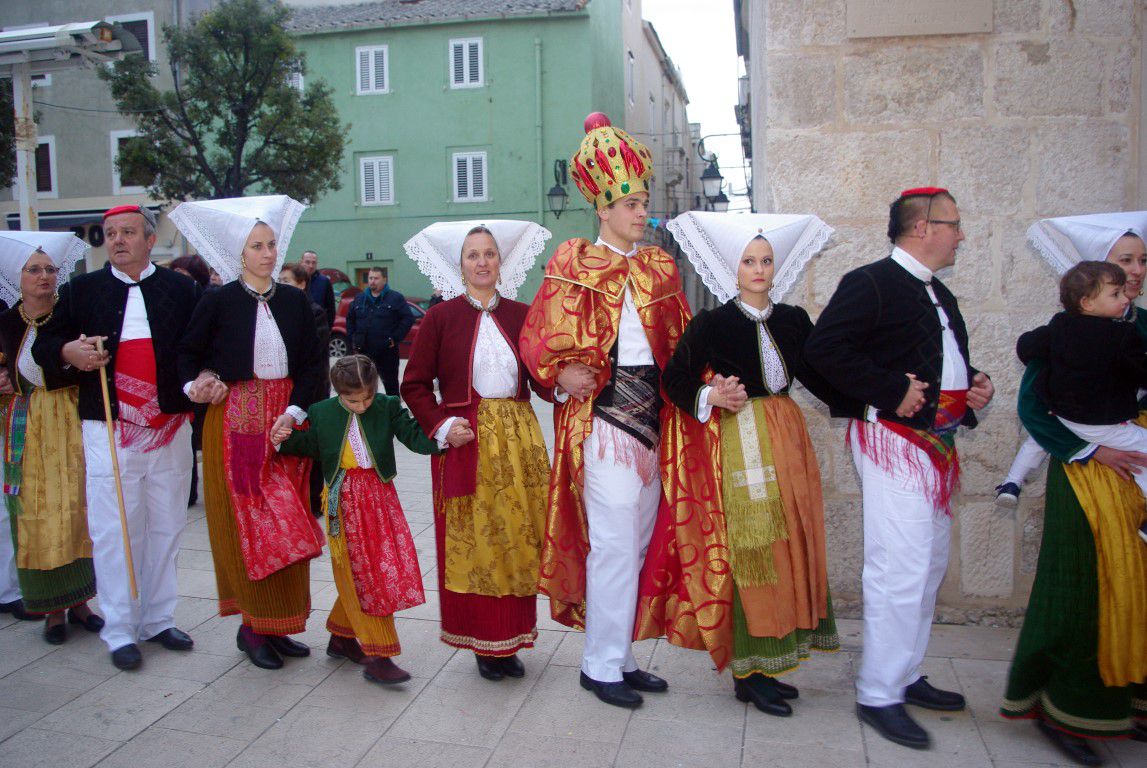.jpg)
The Pag tanac (dance) is performed to the accompaniment of bagpipes. This is a depiction of an encounter between young women and men wearing folk attire who, by dancing, clapping their hands and twirling, attract each other’s attention in order to dance together.
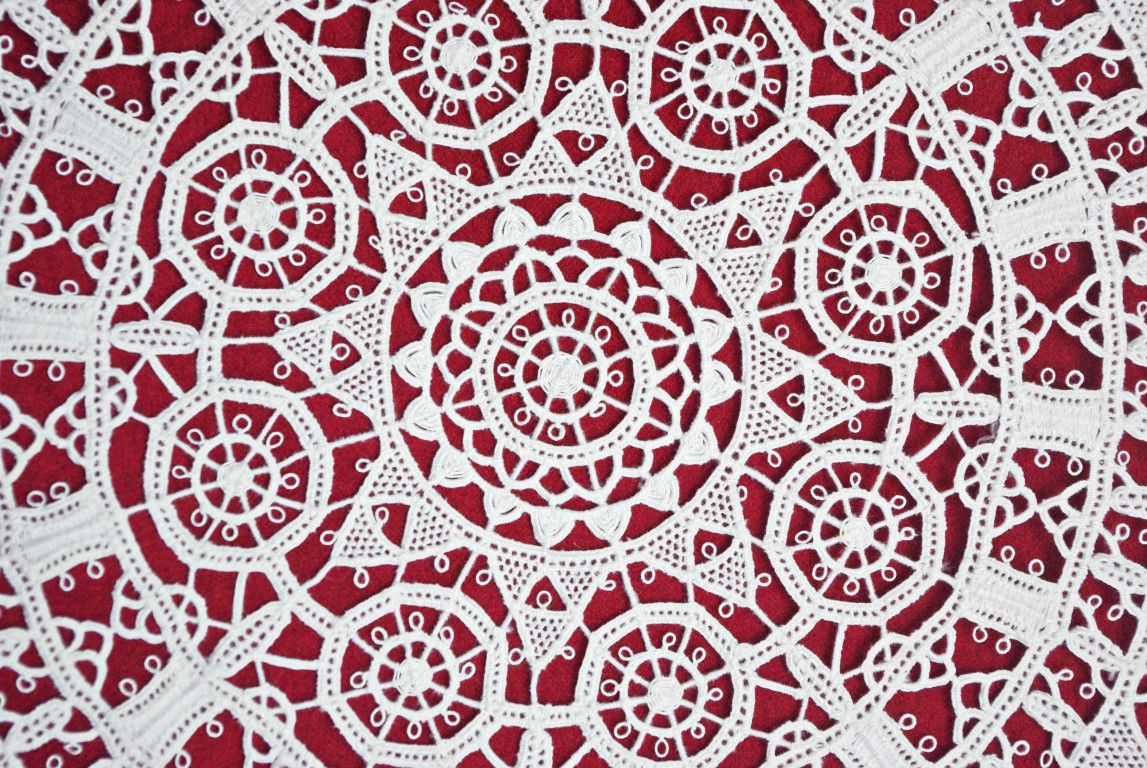
Pag lace is a unique product of the hard-working and skilful hands of the women from the town of Pag. Lace-making is a very old tradition throughout the Mediterranean.
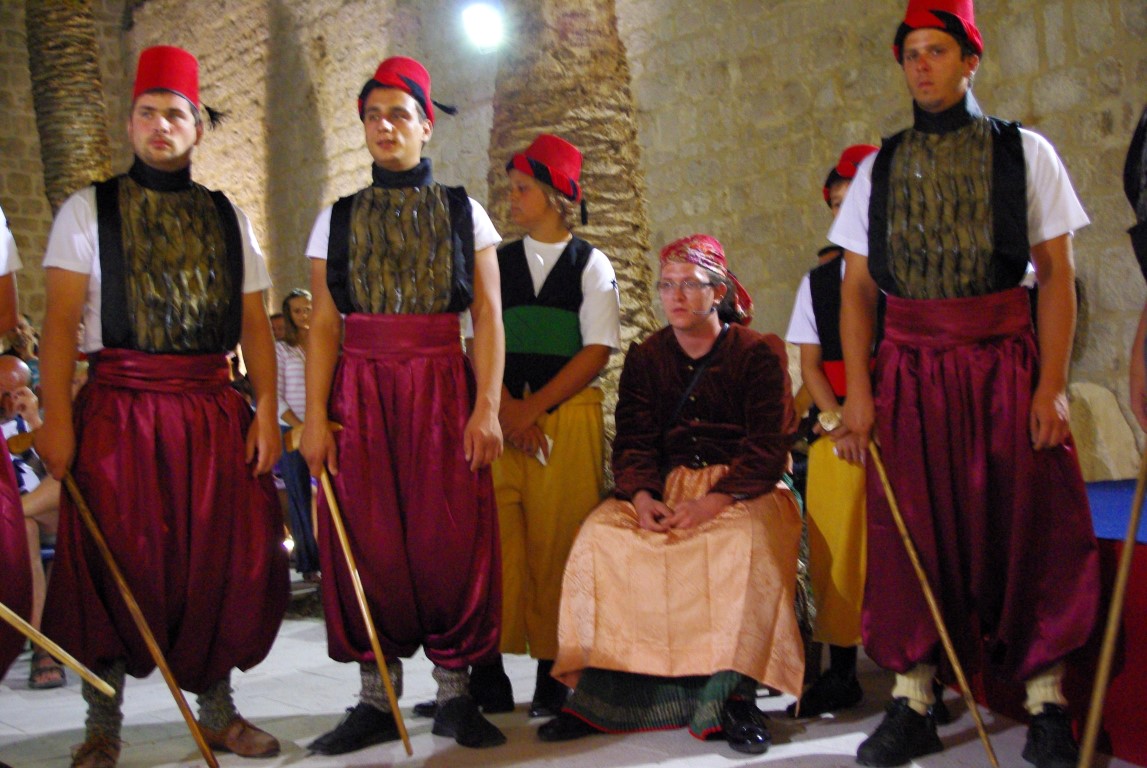
“Slave Girl” is a folk play which is traditionally performed during the carnival period and as part of the Pag Summer and Ethno-Evenings. In times past, a troupe wearing Pag folk attire and “Turkish” uniforms toured the town and displayed their craft in the squares or in front of the houses of notable townsfolk.
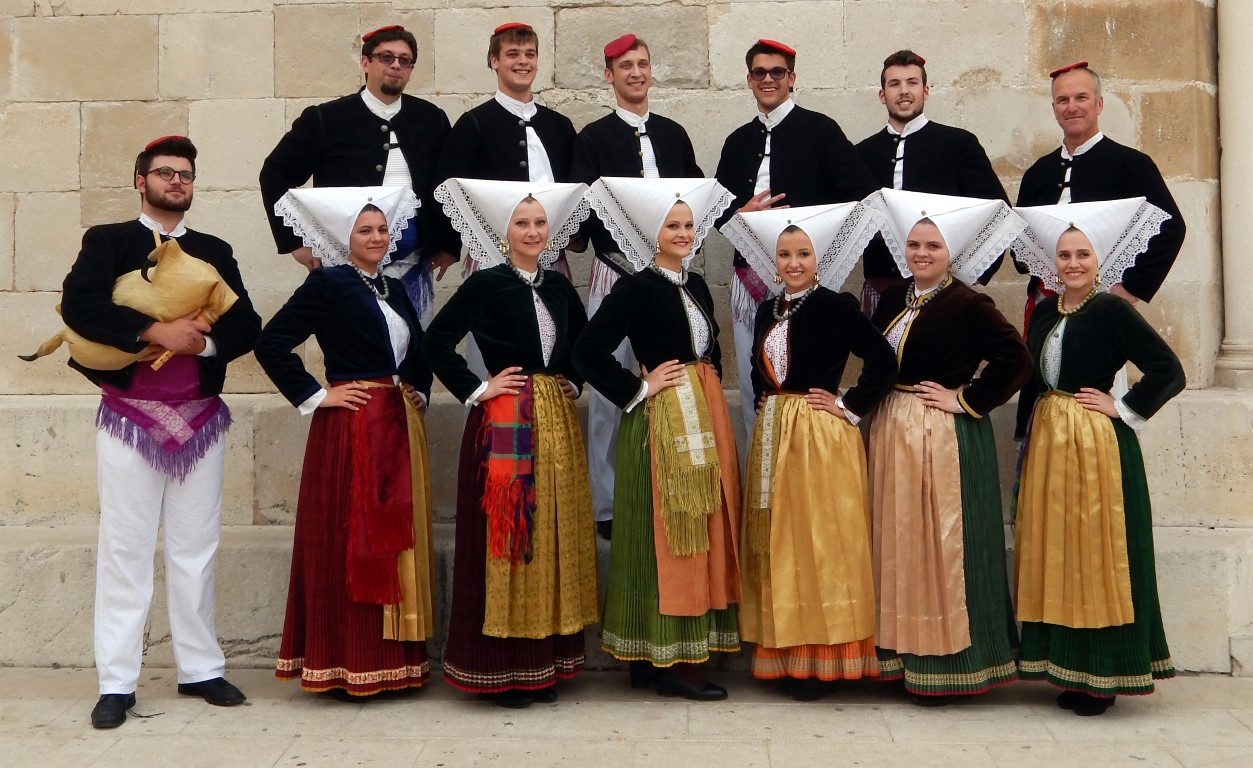
Pag’s folk attire is especially beautiful and known throughout Europe. When speaking of Pag folk attire, one first thinks of the old-style women’s clothing, particularly the lace made by needlepoint, the blouses and headgear (called pokrivaca).
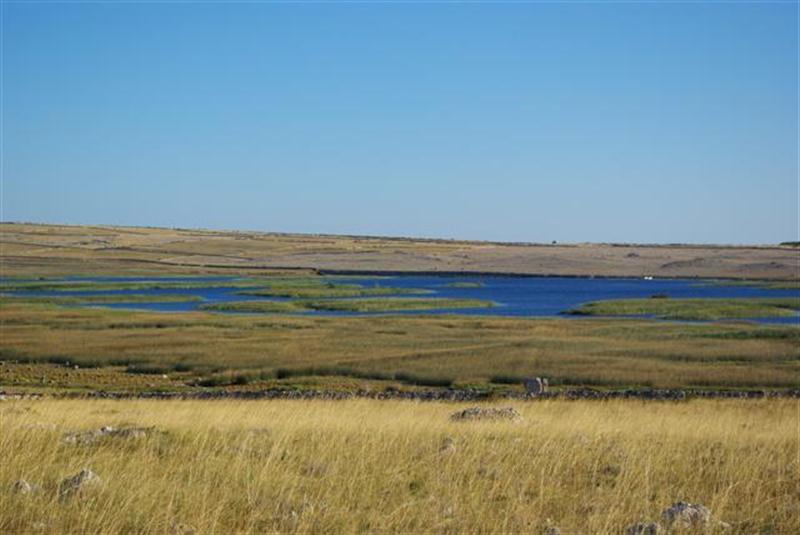
The Velo Blato Ornithological Reserve is located on the southern side of the island of Pag. This area has great biological value, because it is a habitat for over 160 species of marsh birds, of which 66 species nest here.


